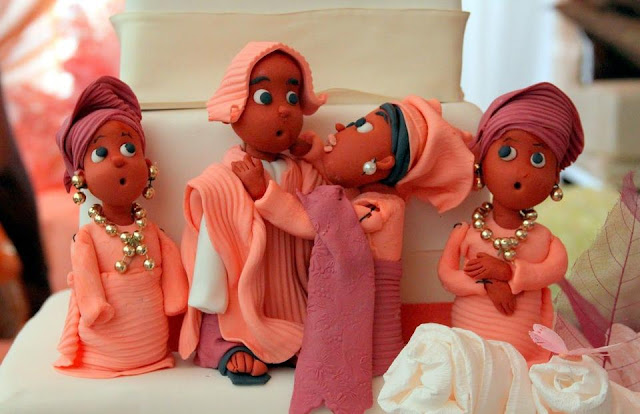It's very well documented within Britain's large West African community the propaganda that exists on mainstream media about the portrayal of Africa at large. Images of North and East African migrants flooding the Mediterranean along with the David Attenborough style BBC documentaries which portray more about the plight of African wildlife and nature reserves ahead of the welfare of the actual human beings that live there. But in spite of this - there is a role that many African parents in London and the wider UK community are playing in putting off our younger generation from wishing to either visit or consider moving back home.
So getting straight to the point - this makes me ask one question. How and have some of our parents contributed to the negative stereotypes many within the Black British community have to Nigeria, Eritrea, Sierra Leone, South Africa and so on? Here are 5 reasons why I believe the answer is 'yes'.
----
1) If my parents say: "We've had terrible experiences back home. No chance."
Whether it is because one has fled from civil war, famine and other terrible experiences. Many African parents in the UK dislike home and transfer this knowledge onto their children. Before I went to Tanzania and Nigeria for the first time - I was certainly anxious because of the many things I heard from both the mum and dad - some of these things were not even mentioned to me but I heard in various conversations on the phone, at the local black barber shops in Newham and even during the secondary school banter amongst black British students in the playground.
----
2) If my parents say: "'You know how our people are. I don't trust them."
Our grief can only come from our own?
It's the age old saying that a prophet is despised in his home country. It's also an age old misbelief that everyone trusts their countrymen. Some people are sensitive to trade with and work with fellow kinsmen of the same country and tribe. I've heard many Kenyans here say they don't like to work for Kenyans just like hearing the few Yoruba spokesmen complain of the difficulties of working with Yoruba people back home. Is this a practice of Self-hatred? Or a common practice amongst people of all culture and races? Regardless, it still feeds into the ears of young people alike and may resent us from not only our own country but our own people.
----
3) If my parents say: "I'm a proud African!" (But don't ask me questions as why I don't live there)
----
4) If my parents say: "Home is where you lay your head"
Nigerian immigrants arrive to the UK in the mid 1970s
Peter Tosh once said "If you're a black man; you're an African." However; there is still this colonial belief that the land of the 'mzungu' is better than home - regardless of how they treat us here. The Hausa elders in Niger say 'Zaman gida ti fi tafiya' (Staying at home is better than travelling) - I'm not too sure where that proverb will be sandwiched between our parents that may interpret this proverb and 'home' to mean the UK or Africa. I guess it's the personal concept of where one calls 'home'. Not that there is any shame if one chooses to call home the UK or Scotland or anywhere else - but whether one feels any guilt if the continent or African nation that they born and brought up in is of no sincere cultural or personal to their children.
----
5) If my parents say: "I don't speak my language with my kids because I want them to improve their English"
Fela Kuti once said in a famous song titled: 'Mr. Grammarticalogylisationalism Is the Boss' that: "The better oyibo you talk - the more bread you go get" which means (the belief that Africans have that one can only advance in this life if they fully appropriate the English language and culture). And that seems to be the underlying factor in why many of our African parents (here in the UK and Europe) are comfortability forfeiting thier mother tongues at the expense of their children's 'English'. And whilst it can be argued that it is not a bad thing if they want their children to excel at this language - does this act as an expensive cultural currency exchanged for their children's linguistic heritage and appreciation for African culture and languages?
----
Join us as we discuss discuss the concept of Identity, Home and Belonging within the UK African Community context on Saturday 7th November July for the 'Is home where you lay your head? Conversations on British African Migration' with Africa Probe at the Migreat Office in Central London as we discuss Black British Migrant stories.


















No comments
Post a Comment
Note: only a member of this blog may post a comment.